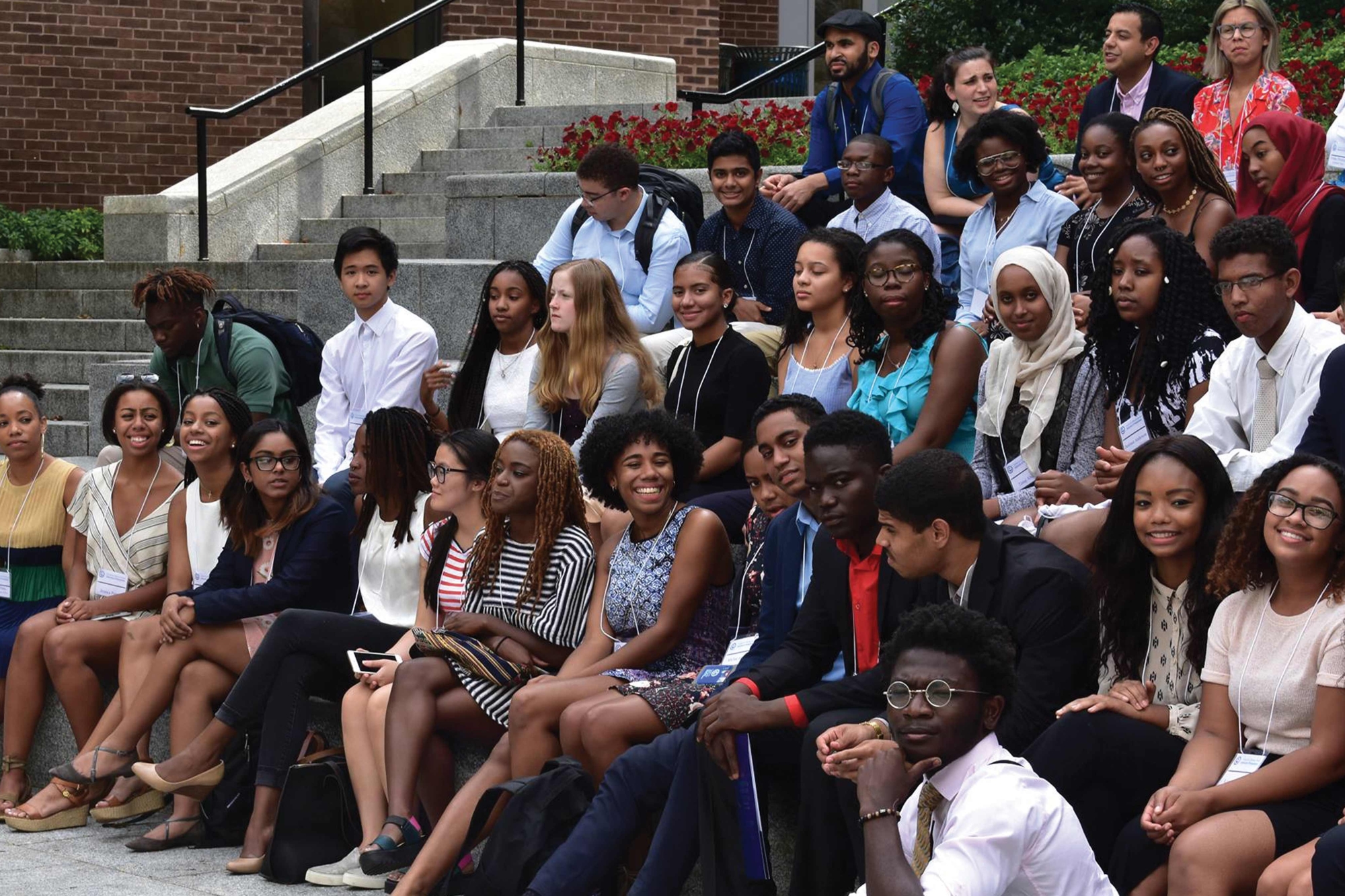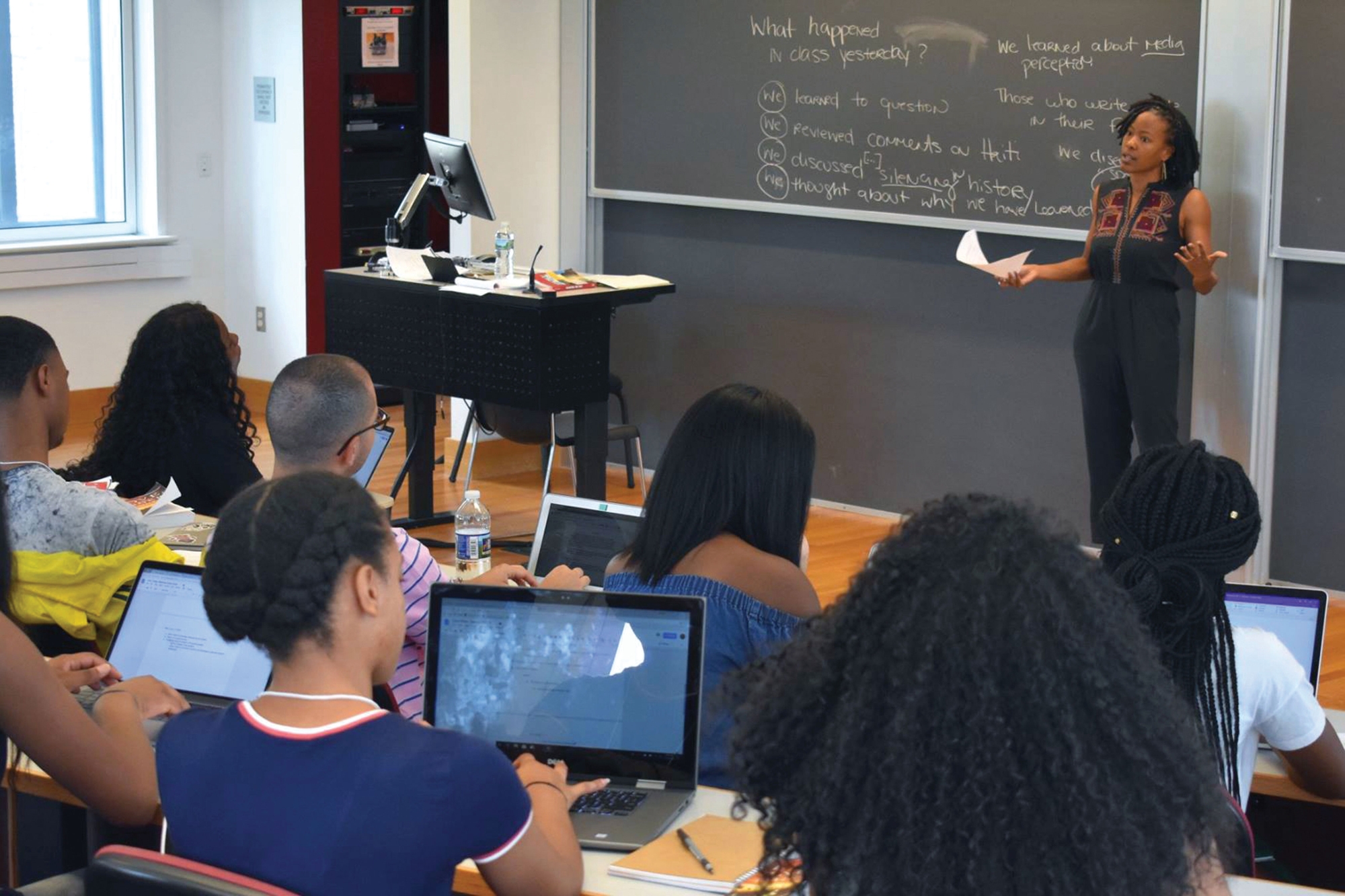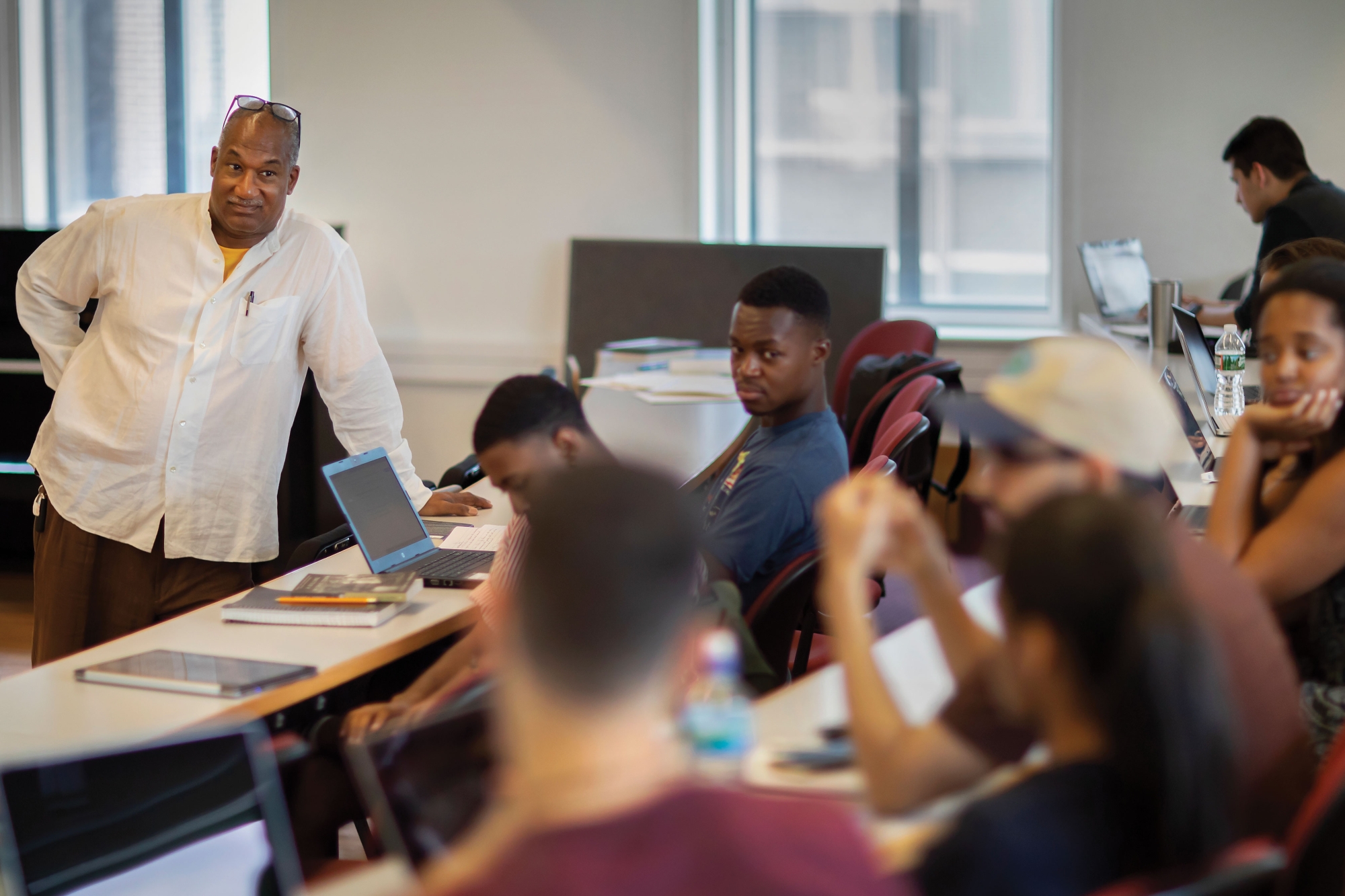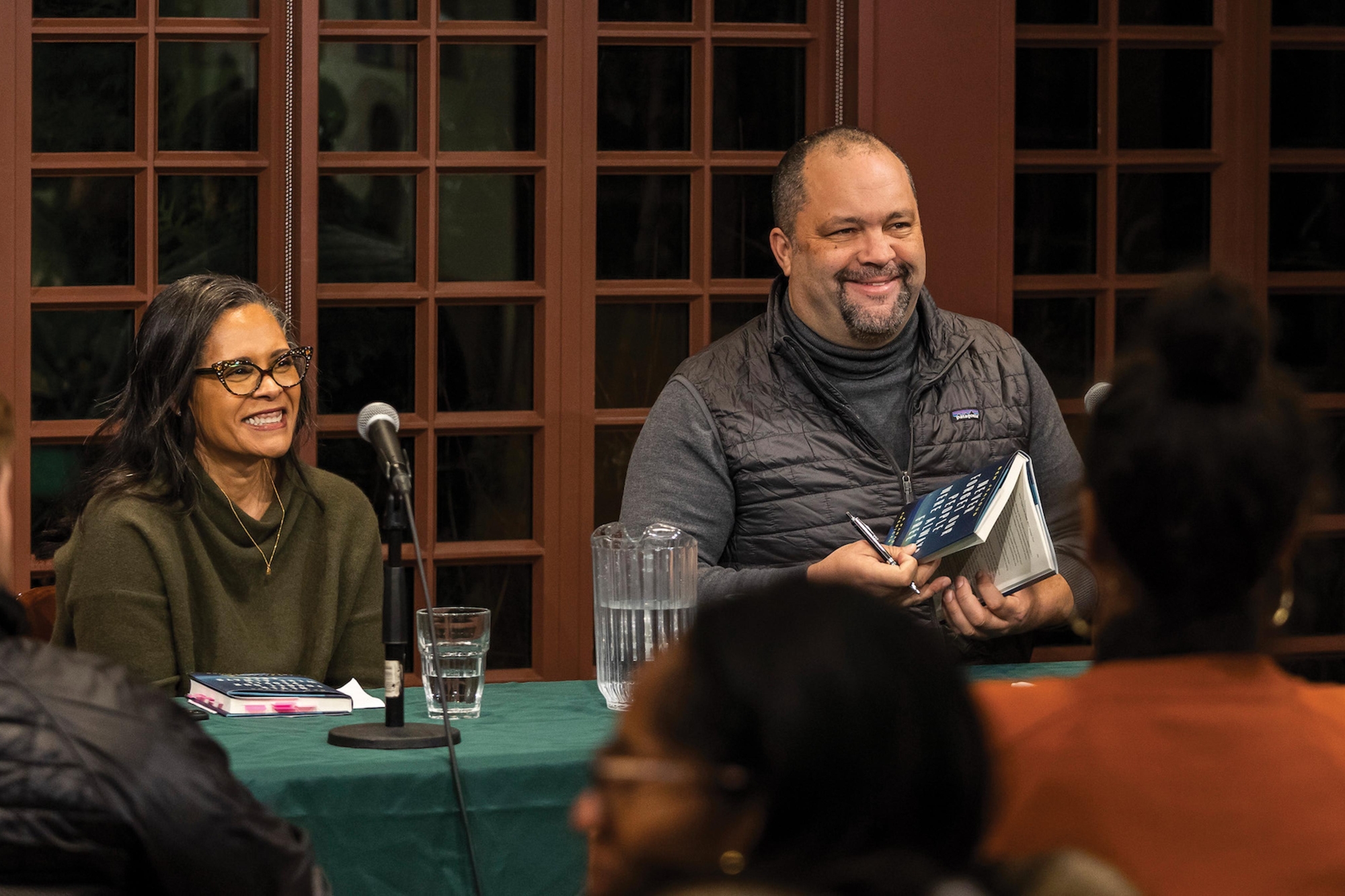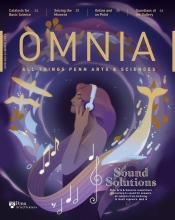Seizing the Moment
Spanning disciplines and geographies, Africana studies at Penn has emerged as a leader in the field.

Introductory courses tend to rely on canonical texts, familiarizing students with a well-established history of a single field and the major thinkers within it. But with Intro to Africana Studies, it’s a different story altogether. “The field is moving so fast and is so wide-ranging, I have to update my syllabus every semester,” says historian and visual artist Grace Sanders Johnson. “One week, students might read a brand-new article from a medical journal, and the next, an 18th-century literary piece.”
Johnson, an associate professor in the Department of Africana Studies, sees the same expansiveness in her research. “Studying the Caribbean through the lens of Africana, I consider modes of movement and patterns of migration, global politics, the environment, and how all of these are related,” she says. “I was trained as a historian, but as an Africana studies scholar, I can’t just stay in one field.”
With experts from the humanities and social sciences working on subjects that span the African diaspora, Penn has emerged as a leading institution in this space. The Center for Africana Studies, directed by Presidential Penn Compact Professor Wale Adebanwi, focuses on public programs and research support. The Department of Africana Studies, chaired by Camille Z. Charles, Walter H. and Leonore C. Annenberg Professor in the Social Sciences, is home to an undergraduate major and minor, a graduate certificate, and a doctoral program. There is also the Summer Institute for Pre-First Year Students, a week-long, on-campus program for accepted students prior to their first semester.
Africana studies is the study of what it means to be human.
This dynamic structure results in faculty from most of Penn’s 12 schools researching and teaching rigorous courses on topics from critical ethnography and the transatlantic slave trade to Egyptian history and 20th-century literature. It looks like a lecture given by the President of Sierra Leone, or a theatrical performance co-written by Penn students and West Philadelphia residents, or the continued evolution of a field largely founded by W.E.B. Du Bois in 1899. It’s a commitment to advancing the scholarship and understanding of race and the lives, cultures, and history of people of African descent on the continent and around the world.
“Africana studies,” says Tukufu Zuberi, Lasry Family Professor of Race Relations, “is the study of what it means to be human.”
Charles, also a professor of sociology and Africana studies and faculty co-director of the Office of Penn First Plus, adds, “That means it is not just about racial justice, but about environmental justice, gender, sexuality, social class, and more. When your frame is, ‘What does it mean to be human?’ rather than a single discipline, you have wonderful opportunities.”
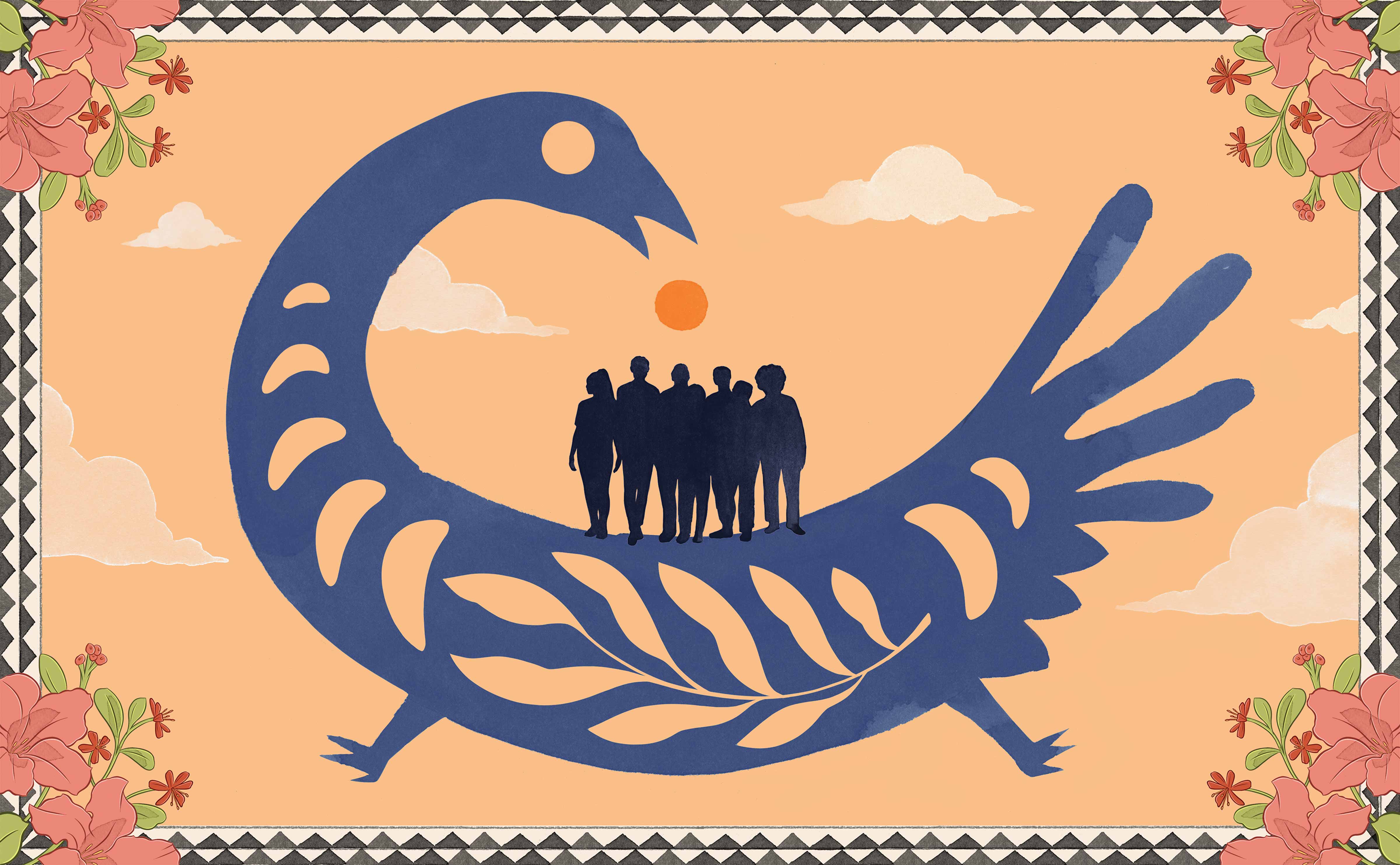
A History of Africana Studies at Penn
The Center was founded in 2002 with Zuberi as its inaugural director, and the Department came 10 years later. Both of these grew out of other Penn initiatives and programs on the African diaspora, including the Afro-American Studies Program, the Center for the Study of Black Literature and Culture, and the Africa Center.
“Africana studies at Penn has a long history,” says Zuberi. “You have to date it back to the ingenious work done by Du Bois in writing the Philadelphia Negro [published by Penn in 1899], even though Penn did not have the courage or fortitude to offer him a proper job. But even with those restrictions, he wrote what is now considered a classic in Africana studies.”
Zuberi cites other leaders in Black intellectual thought at Penn, too: William Fontaine, GR’36, who became the University’s first fully affiliated and first tenured Black faculty member (in 1951 and 1963, respectively); John Edgar Wideman, C’63, HON’86, who taught Penn’s first African American literature course in 1968; and Sonia Sanchez, a poet and leader of the Black Arts movement.
“These people,” Zuberi says, “laid the foundation to create an Afro-American Studies program,” which began in 1972. “Students played a role, too,” he adds, including protests led by the Black Student League (formerly the society of African and Afro-American Students). “They demanded there be more Black students and Black professors.”
Zuberi goes on to describe the expansion of Black studies in the 1980s and ’90s until what he calls “a moment of reckoning” in the late ’90s, a point in time when the study of Africa and its diaspora was still spread across the University. “We needed a new model,” Zuberi says. “So, we brought together many disparate efforts and resources to create the Center for Africana Studies.” That lead to a doctoral program, which began in 2008, and finally, the Department of Africana Studies, established in 2012.
This type of progression is similar to what has happened in the discipline more broadly, Adebanwi adds.
Interdisciplinary by Design
Today, Penn builds from its beginnings with Du Bois and takes a diasporic approach—even down to what it calls itself. “We were an early adopter of the label ‘Africana,’” says Charles. “Names like ‘Black studies’ or ‘African American studies’ have historical specificity and they’re American-centered. We have a pretty even distribution of social scientists and humanists, we have African-Americanists, experts in Afro Latin America and the Caribbean, and people who study matters internal to Africa. With the name ‘Africana studies,’ we’re purposely reflecting that our faculty have a wide range of diasporic expertise.”
The very idea that drawing from multiple disciplines can create a richer, more nuanced understanding of complex topics seems almost a given in today’s university environment, where courses are cross-listed, double majors or dual Ph.D.s are not uncommon, and faculty members have appointments in multiple schools. But that was not always the case. Today’s emphasis on interdisciplinarity, Johnson explains, grew out of research in Africana studies.
“Black feminist scholars like Kimberlé Crenshaw, who coined the term ‘intersectionality’ in 1989, and members of the Combahee River Collective [a Black feminist political group founded in 1974] are the ones who said, ‘Wait a second. We can’t consider all these variables individually,’” Johnson says. “This is a popular way of thinking now, even in STEM fields.”
Timothy Rommen, Davidson Kennedy Professor in the College and a professor of music and Africana studies, recalls starting at Penn in 2002 as a member of the Department of Music “fresh out of grad school.” Zuberi, who was then the director of the Center for Africana Studies, knew that Rommen specialized in Caribbean music and invited him to one of the Center’s events. Rommen says it gave him “two homes” at Penn.
“My home in Music is really valuable. But I have another home in Africana, where we are driven by common concerns and urgent questions,” Rommen says. “When sociologists are hanging around folks like me and Herman Beavers [Julie Beren Platt and Marc E. Platt President’s Distinguished Professor of English and Africana Studies], they might frame questions differently than they would to people in their discipline, and vice versa. The interdisciplinary nature of Africana makes it so vibrant.”
With nine hires in 12 years in the fields of history, religion, political science, anthropology, and Africana studies, this collaborative dynamic continues to expand. “Penn is already a leader in the field,” Adebanwi says, “but with the scale and resources of the University, we’re positioned to be the leader in the field of Africana studies worldwide.” That includes community building, which starts with students, sometimes before their first year even begins.
Belonging and the Summer Institute
The Center for Africana Studies Summer Institute for Pre-First Year Students program, free of charge and open to admitted students across the University, hosts about 80 students per summer for a week of courses taught by standing faculty ahead of the semester’s start. Participants also benefit from establishing relationships with faculty advisors, graduate fellow mentors, and peer mentors (current undergraduates who participated in the program). Students determine the amount of support and connection they need, and faculty follow their lead.
“Some students attend only their two advising sessions, while others come to my office to study nearly every day for their four years,” says Charles, who has directed the Institute since 2006. “We’re here to support students when they need it, and we’re there to celebrate their achievements.”
It tends to have a lasting impact for participants. “The Summer Institute was life changing,” says Joshua Bennett, C’10, now a poet, artist, and MIT professor. “I had never encountered the idea of global Black culture and a diasporic vision of Black culture in the way I did there. I learned about things like samba from Timothy Rommen and Black lives in Latin America that were utterly transformative.”
For Rommen, the sentiment is mutual. “Teaching in the Summer Institute is one of my favorite things we do,” he says. “It is a profoundly communal and intellectual space that creates a sense of belonging that lasts long after the week ends.”
A Community with Students at its Core
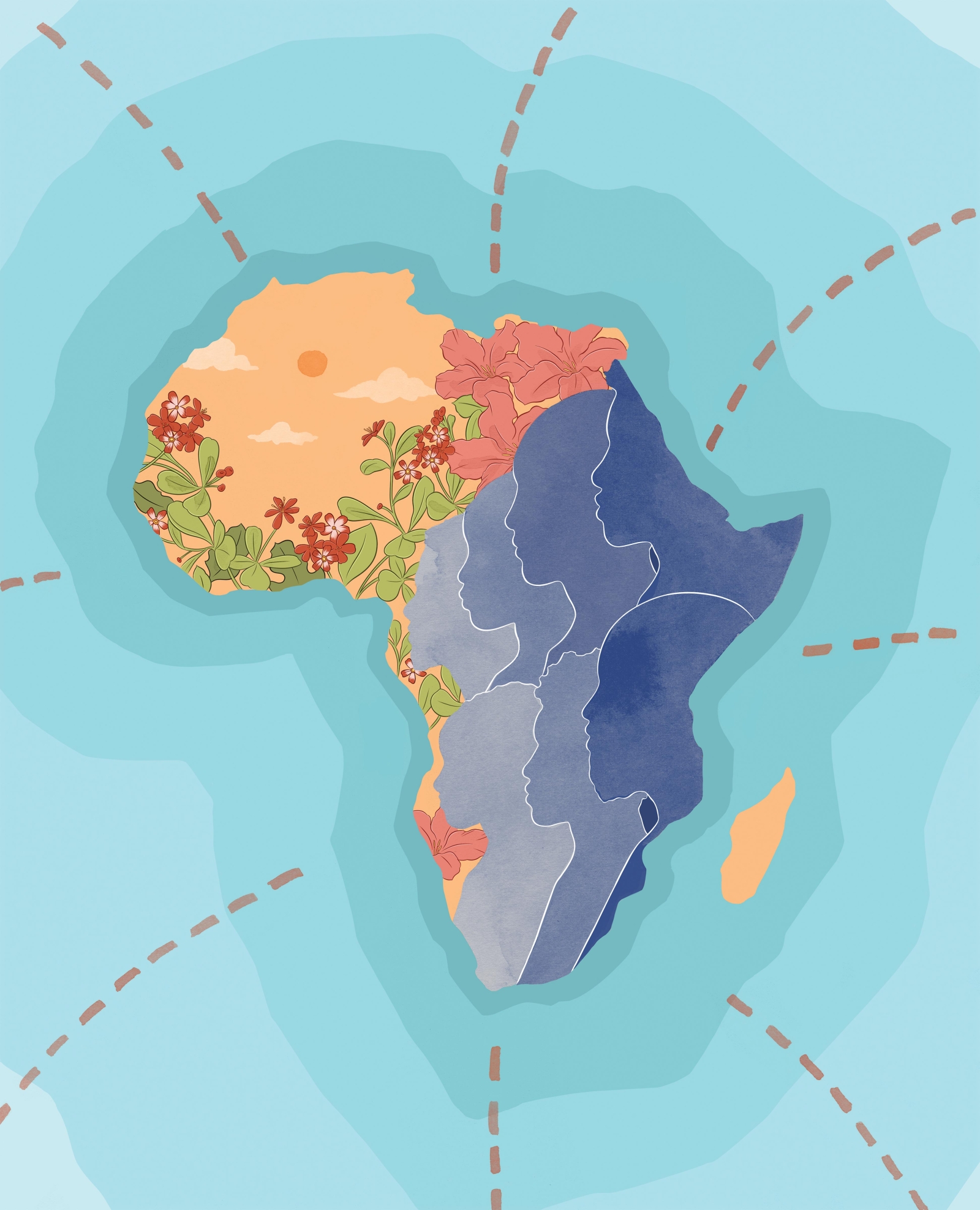
Student support continues beyond the Summer Institute. Charles says that faculty in the department are intentional about majors and minors, and about graduate students having opportunities to interact with mentors and advisors outside of the classroom—in office hours, at casual check-ins, or at Center events. As the Department and Center grow, leadership works to ensure that students remain a top priority.
Each year, the Department graduates around 10 to 12 majors and 30 minors. The graduate student group consists of around 15 students, pursuing independent research and often acting as mentors and instructors for undergraduates like Sophia Weglarz, C’24, an Africana studies and history double major who found a home in the Department. “I’ve always harbored a love for Black history. It’s my history—it’s American history,” she says.
When she started taking Africana studies classes, she says she was surprised by the range offered. “I didn’t want to take a sociology or English class,” she says. “But I’ve really come to appreciate how the major takes you down these different paths, because they challenge you to think beyond the frame of reference you’re most comfortable in.”
I’ve always harbored a love for Black history. It’s my history—it’s American history.
Weglarz will attend law school after graduation, and she says Africana studies gave her context for the relationship Black Americans have with the law, historically and now. “Courses I was initially reluctant to take helped me build this understanding,” she says. “Without them, attending law school and working toward a career as an advocate wouldn’t have even crossed my mind.”
Rose Poku, a second-year doctoral student pursuing degrees in Africana studies and comparative literature, says she chose Penn largely due to the outstanding faculty and the “ethics of care” she saw in the department, giving special recognition to her dissertation committee, fellow graduate students, and Carol Davis, the department’s administrator and graduate coordinator.
“I get to work on my research with a team of Black women who are brilliant and engage with me so thoughtfully and generously,” Poku says.
Poku, who will teach her own course on comparative literature next semester, connected with undergraduates as a teaching assistant in an Intro to Africana Studies class taught by Jasmine Johnson, an assistant professor of Africana studies. “It’s been a great experience,” Poku says. “I really like showing them how enormous the Black world is and seeing them excited.”
In the Neighborhood, Around the World
Africana studies at Penn aims to connect the University community with people beyond it, whether residents of Philadelphia or faraway members of the African diaspora. Sometimes that means leaving campus. One example is the Academically Based Community Service course August Wilson and Beyond, co-taught by Beavers and Suzana Berger of Penn’s Netter Center for Community Partnerships. The class, run since 2017, is open to Penn students, West Philadelphia residents, and local high school students. Together, participants read August Wilson’s plays and write monologues performed by professional and amateur actors.
Weglarz has supplemented classroom learning and campus research with visits to sites including the Historical Society of Pennsylvania, Marian Anderson Museum, and Paul Robeson House. She works at the Robeson House as an intern focused on community outreach and individual Black history preservation.
“The connections between Africana studies and the community run deep,” Weglarz says. “My experience with the department allows me to learn Black history outside of the classroom.”
These connections also mean bringing scholars, activists, and writers to campus through annual events such as the MLK Social Justice Lecture, the Higginbotham Memorial Lecture, and Brave Testimony, an event in honor of National Poetry Month. Under Adebanwi’s leadership and with University support, the Center is expanding this type of programing. Three years ago, it received funding to begin a distinguished lecture series in African studies, and Kelly Harris, senior staff director, recently joined the Center with the charge to grow community connections and take a global view.
For example, the Center has established a relationship with Riverside Correctional Facility and, in July 2023, offered a class on Malcolm X. Harris is out in the community, teaching classes on Black history and the civil rights movement at churches in Philadelphia and New Jersey. In spring 2024, the Center hosted a convention for local high school students, offering opportunities to address contemporary challenges and create actionable solutions.
Around that same time, the Center hosted Julius Maada Bio, President of Sierra Leone, for a lecture on democracy, progressive politics, and inclusive development in Africa. And in collaboration with Penn’s Perry World House, it presented a lecture on 30 years of democracy by Kgalema Petrus Motlanthe, the former President of South Africa. Recent guests have also included Mokgweetsi Masisi, President of Botswana; Yemi Osinbajo, Vice President of the Federal Republic of Nigeria; and Wole Soyinka, a playwright, novelist, poet, and the first African to win the Nobel Prize for Literature.
“Philadelphia has a rich history of people of African descent,” Adebanwi says. “So, we are trying to broaden our scope and engage beyond the academy. We’re well positioned to grow this engagement and connect locally, nationally, and internationally.”
The Future of Africana
The field, the Department, and the Center have a lineage of innovation and growth, something that today’s leadership continue to steward. Bennett says that his experience as an Africana studies major provided him with a model for dynamism. “Their willingness to reinvent themselves has been a bright light,” he says. “As I work to expand the infrastructure around Black studies at MIT, the growth and possibilities I saw in my time at Penn and the Summer Institute allow me to be excited and think, ‘Yeah, let’s build something new.’”
At Penn, leadership in Africana studies is in a moment of building, too. Looking toward the future, faculty members contemplate and discuss changes and new offerings they would like to see, including fellowships for visiting graduate students, postdoctoral fellows, and faculty and new academic experiences for students. One of the biggest opportunities is a dedicated space to gather and cultivate community. Rommen and Johnson, whose classes often involve hands-on or large-scale work, say that with creative thinking, the space could be used to host signature events and offer innovative courses. It’s all with an eye toward continuing to grow as the field does.
The future of Africana studies is wide-ranging, Zuberi says. “It’s understanding the relationship of Black bodies to the rise of modern social media and technology, to the rise of the human genomic project, to the rise of robotics, to the rise of AI, and so on,” he says. “This is the space of Africana.”
It’s also a transitional discipline, he adds—one that is working to decolonize spaces and traditional thinking and looking to “pull people into a new modern,” space that rejects racialized and gendered hierarchies.
The people who sustain Africana studies at Penn are ready to take on these challenges, Adebanwi adds. “We have fantastic faculty. We have excellent students. We’re working in all these different areas of global Africa. Now, we’ve got to fully claim our moment.”


